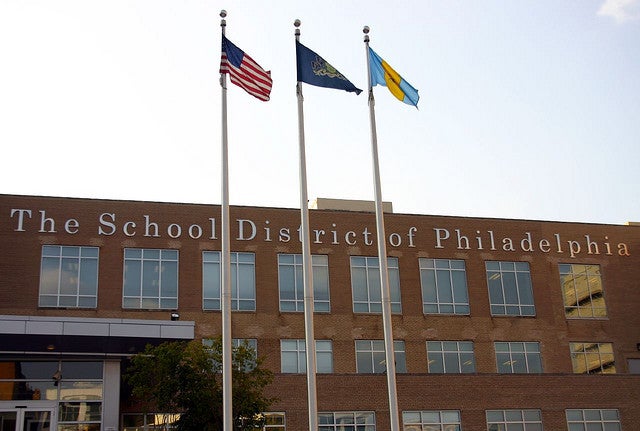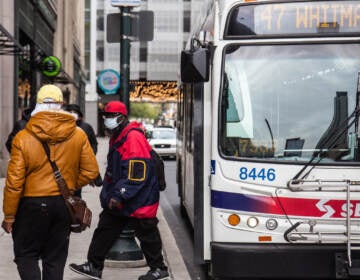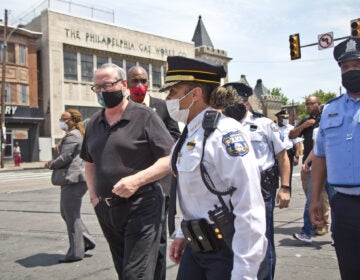Public School Blues: news roundup

This week’s news is again dominated by school coverage, so here’s a special roundup:
- Governor Corbett will be in Philly today, and activists plan to welcome the Governor with a human red carpet outside the Prince Theater in protest education cuts. Corbett is in town to address the Chamber of Commerce.
- Grant Calder, a Friends Central teacher, contextualizes today’s school debate with a look to the city’s public school past in an Inquirer opinion piece. Philly never had a public school golden age, Calder contends. In 1912, as in 2012, the city “lacked the will to invest in high-quality education for all its children.” And, he continues, “The populations served by the district over the decades have always lacked the economic and political clout to force the city to provide better schools.” As long as education funding is tied to municipal boundaries, the problem isn’t going anywhere.
- An Inquirer editorial today calls for caution as the radical school-restructuring plan is implemented. The scale of the School District’s problems requires major intervention, but there are very reasonable doubts about the process ahead. As dozens of schools close, will quality charters be ready to absorb the high volume of students? Will there be adequate oversight of the charters and “achievement networks” by the shrunken district?
- Retired teacher Lisa Haver calls the plan the end of public education in Philadelphia, in a Daily News opinion piece peppered with tough questions. How have we arrived at a point where the public-school system can be auctioned off to the lowest bidder? Will our schools be able to remain a unifying force in our society or will they widen the gulf between haves and have-nots? Haver has doubts about the ability people from outside of the education world to privatize the public school system with quality education in mind.
- The It’s Our Money podcast this week features three big-time questions for the School District: “Why do the schools need the extra money to come from property taxes? How will the district’s restructuring plan save money? And what is Harrisburg’s role in this?” Listen here.
- Metropolis has a two-part series on making public schools work by Connie Langland. In part one, she makes the case that public schools can be turned around, with a close look at Stetson Middle School. In part two, she zeroes in on strategies being used to boost student learning and ultimately test scores. She concludes, “what matters is the student — not the bureaucracy, not tradition, and not doing things the easy way.”
WHYY is your source for fact-based, in-depth journalism and information. As a nonprofit organization, we rely on financial support from readers like you. Please give today.






